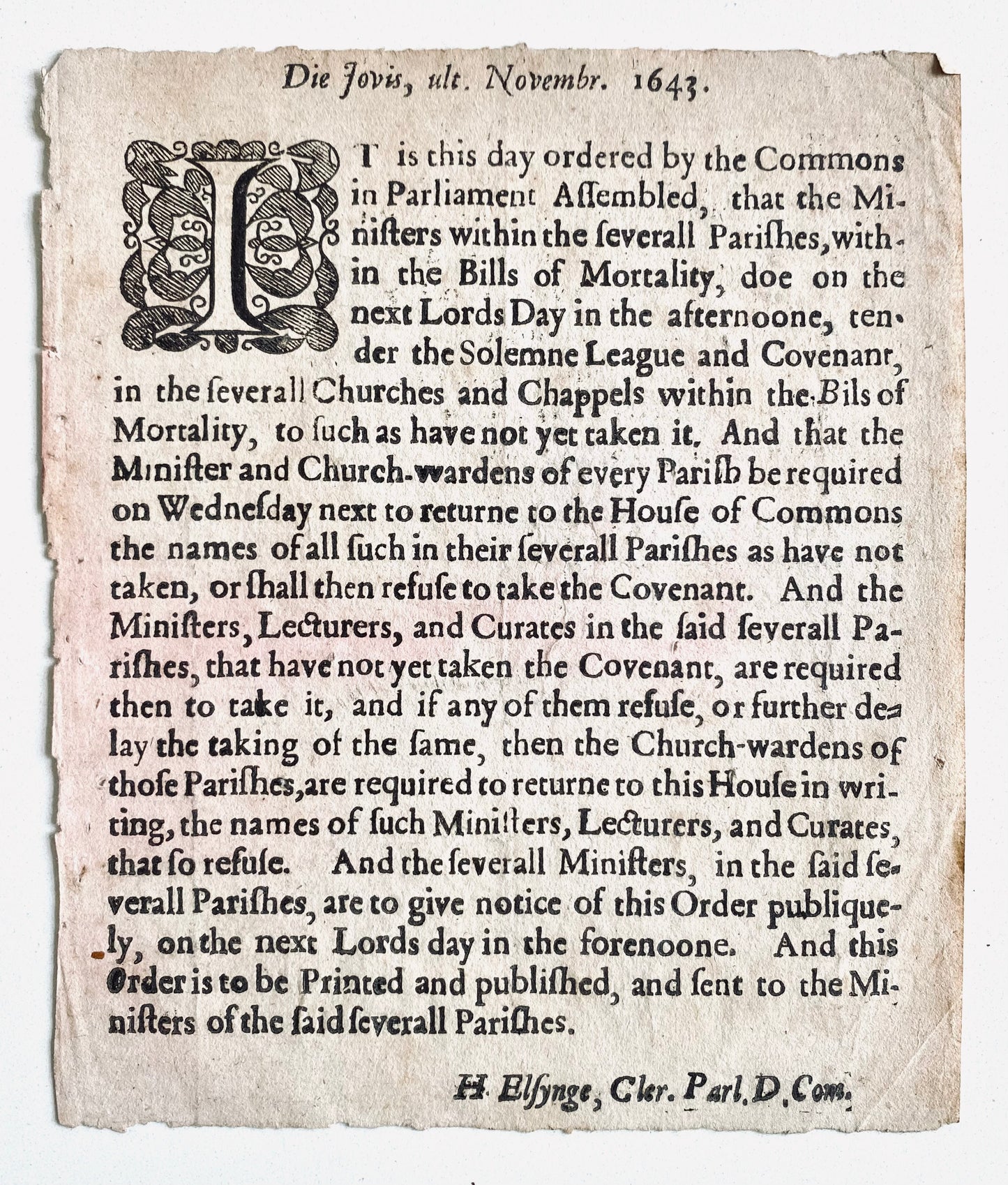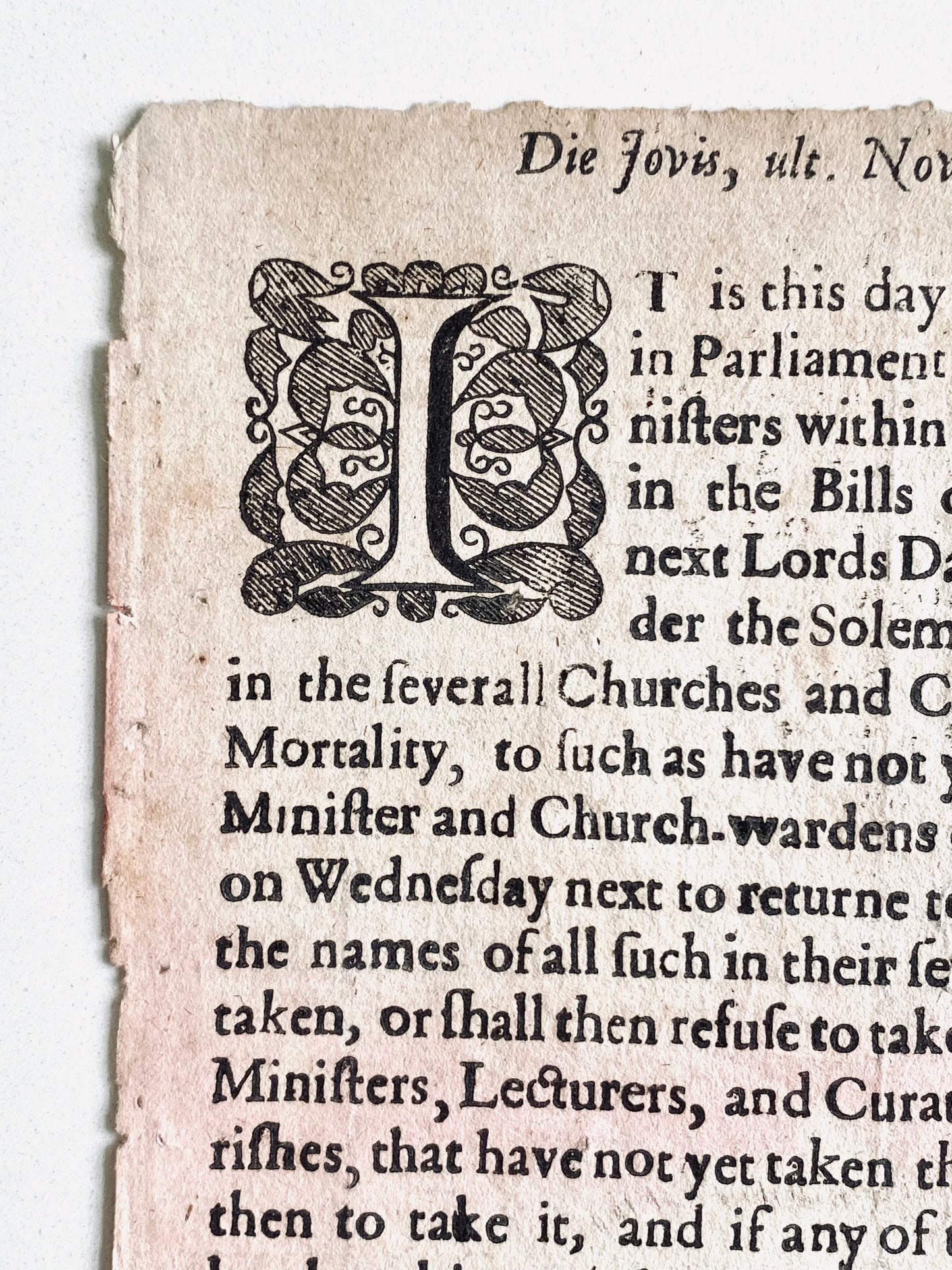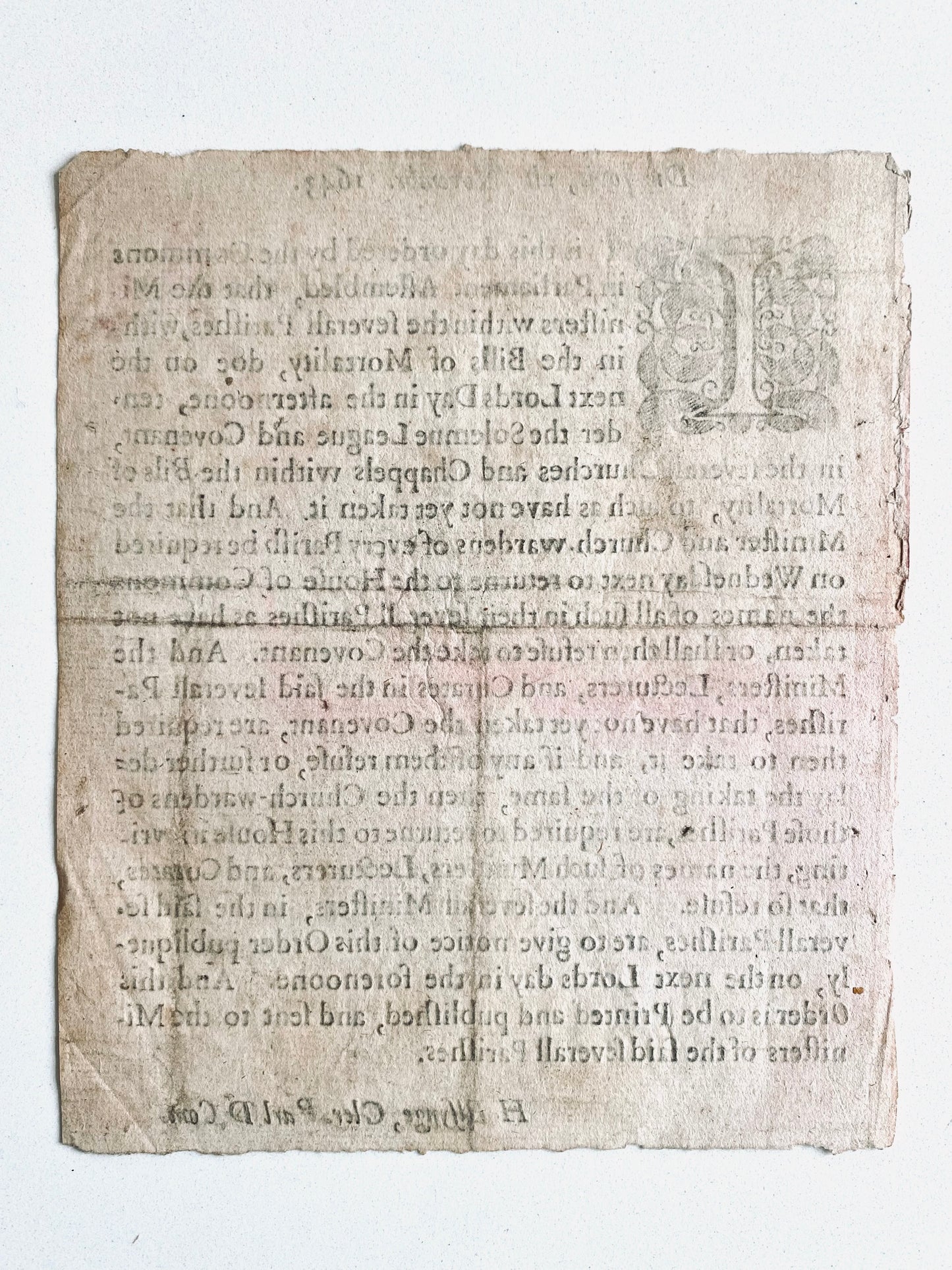Specs Fine Books
1643 WESTMINSTER ASSEMBLY. Rare Broadside Issued by Parliament Enforcing Presbtyerianism as National Religion of England.
1643 WESTMINSTER ASSEMBLY. Rare Broadside Issued by Parliament Enforcing Presbtyerianism as National Religion of England.
Couldn't load pickup availability
An exceptionally rare broadside issued and used by the Parliament of England, under the Clerkship of Henry Elsynge [1606-1656]. The present order was printed as a result of the vote of Parliament and the Agreement of Scotland and the Westminster Assembly in September of 1643 to formally adopt the "Solemn League and Covenant." The covenant was, in the view of the Presbyterians anyway, between God and the political apparatus of the country in a way that reflects the theocratic reign of God through Kings, political structures, and legal structures in Old Testament Israel. The guarantee of Presbyterianism [with some nods to Independents] made theological way for the Scottish to align militarily with Cromwell and the British Parliament against the Royalists . . . because they were now warring for God's new Israel.
Many see the role of Scottish Presbyterian ministers during the American Revolution as a continuation of the 17th century Presbyterian engagement. The American adoption of the "New Israel" language of the Covenanters, etc., implies some sort of relationship.
Unsurprisingly, other groups of Christians weren't quite so keen on the idea. And it was to this melding of politics, military might, and legal power with the Kingdom within Presbyterianism that Roger Williams reacted, accusing Presbyters of being no better than Popes, inflicting their theology over men's consciences and believing that the Kingdom of God can be built by force of legislation and penalty of law.
After the Solemn League and Covenant was adopted, as Williams and others feared, it began. And this little document was the first stroke. Parliament then voted in November to require all ministers to align themselves with the Solemn League and Covenant or to be brought before Parliament.
This is the precise act and order from that November date and would have been taken by a Parliamentarian to his Parish and used as the basis of the demand that each and every Minister, Lecturer, and Curate subscribe.
Very nicely preserved. Perhaps trimmed at some point; with no other traced examples, it is difficult to know. A very faint pink stain and old folds that are no danger of weakness or tear.
An exceptionally rare piece of Presbyterian history, English Civil War history, and a potent conversation piece about the challenging relationship the Church has had and continues to have involving our use of civil structures of power.
Share








